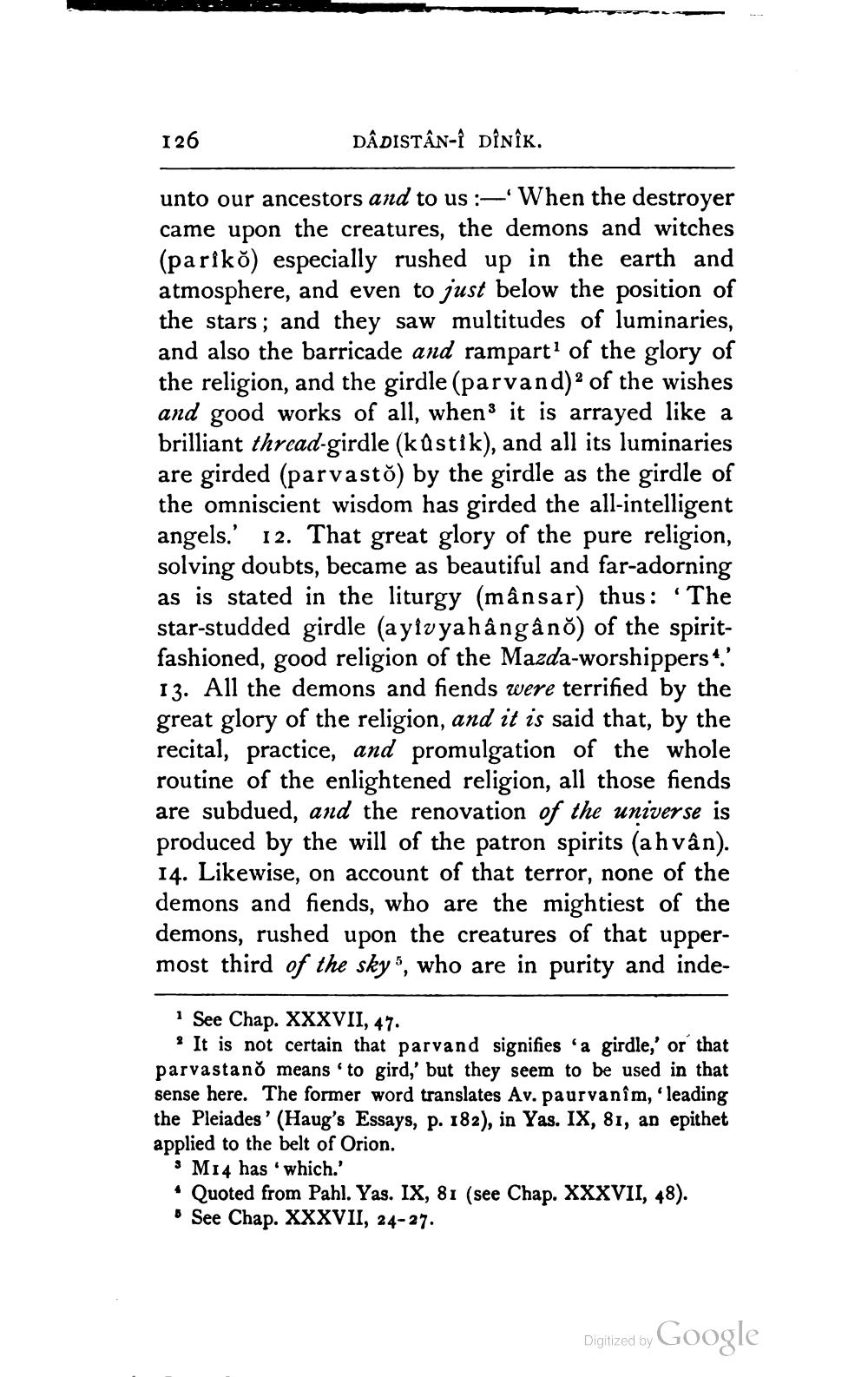________________
126
DÂDISTÂN-Î DÎNÎK.
unto our ancestors and to us :- When the destroyer came upon the creatures, the demons and witches (pariko) especially rushed up in the earth and atmosphere, and even to just below the position of the stars; and they saw multitudes of luminaries, and also the barricade and rampart of the glory of the religion, and the girdle (parvand) of the wishes and good works of all, when it is arrayed like a brilliant thread-girdle (kūstik), and all its luminaries are girded (parvasto) by the girdle as the girdle of the omniscient wisdom has girded the all-intelligent angels.' 12. That great glory of the pure religion, solving doubts, became as beautiful and far-adorning as is stated in the liturgy (mânsar) thus: “The star-studded girdle (a yivyahângâno) of the spiritfashioned, good religion of the Mazda-worshipperst.' 13. All the demons and fiends were terrified by the great glory of the religion, and it is said that, by the recital, practice, and promulgation of the whole routine of the enlightened religion, all those fiends are subdued, and the renovation of the universe is produced by the will of the patron spirits (a h vân). 14. Likewise, on account of that terror, none of the demons and fiends, who are the mightiest of the demons, rushed upon the creatures of that uppermost third of the sky 5, who are in purity and inde
* See Chap. XXXVII, 47.
? It is not certain that parvand signifies 'a girdle,' or that parvastano means 'to gird,' but they seem to be used in that sense here. The former word translates Av. paurvanim, leading the Pleiades' (Haug's Essays, p. 182), in Yas. IX, 81, an epithet applied to the belt of Orion.
M14 has 'which.' • Quoted from Pahl. Yas. IX, 81 (see Chap. XXXVII, 48). 3 See Chap. XXXVII, 24-27.
Digitized by Google




